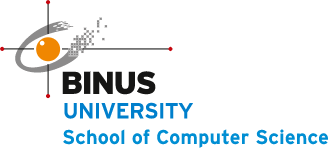Student Outcomes
After completing the study, graduates are:
- Able to analyze a complex computing problem and to apply principles of computing and other relevant disciplines to identify solutions
- Able to design, implement, and evaluate a computing-based solution to meet a given set of computing requirements in the context of computer science
- Able to communicate effectively in a variety of professional contexts
- Able to recognize professional responsibilities and make informed judgments in computing practice based on legal and ethical principles
- Able to function effectively as a member or leader of a team engaged in activities appropriate to computer science
- Able to apply computer science theory and software development fundamentals to produce computing-based solutions
- Able to conduct data management, including data design and collection in the form of surveys and experiments, data organization, exploration, and analysis based on statistical methods, using statistical software.
- Able to solve estimation problems and hypothesis testing through data utilization and several methods of estimation and hypothesis testing.
- Able to conduct data science project flow to solve real business and industry problems
- Able to develop software by implementing statistical models.
- Able to apply interdisciplinary knowledge and skills in developing alternative solutions for problem-solving



Comments :